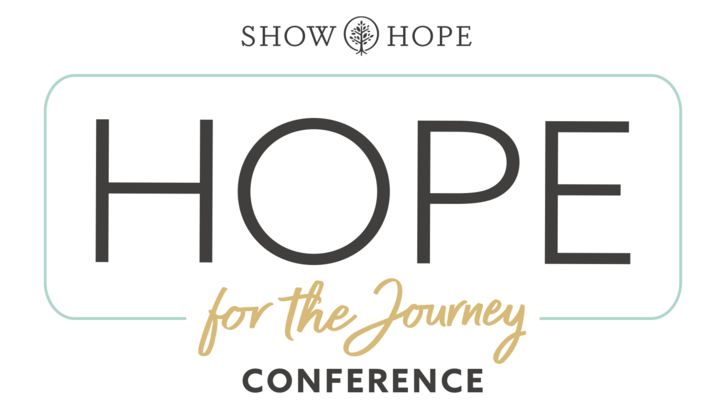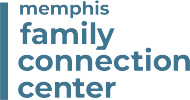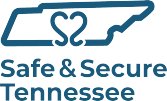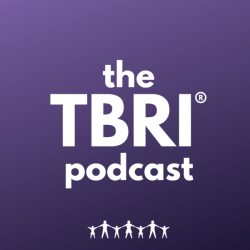TBRI with DCS
TBRI® is an attachment-based, trauma-informed intervention that is designed to meet the complex needs of vulnerable children. TBRI® uses Empowering Principles to address physical needs, Connecting Principles for attachment needs, and Correcting Principles to disarm fear-based behaviors. While the intervention is based on years of attachment, sensory processing, and neuroscience research, the heartbeat of TBRI® is connection.
TBRI® is designed to meet the complex needs of children who have experienced adversity, early harm, toxic stress, and/or trauma. Because of their histories, it is often difficult for these children to trust the loving adults in their lives, which often results in perplexing behaviors. TBRI® offers practical tools for parents, caregivers, teachers, or anyone who works with children, to see the “whole child” in their care and help that child reach his highest potential.
Because of their histories, children who have experienced trauma have changes in their bodies, brains, behaviors, and belief systems. While a variety of parenting strategies may be successful in typical circumstances, children with histories of harm need caregiving that meets their unique needs and addresses the whole child. That said, we’ve found that any child benefits from a nurturing, trusting relationship with a safe adult.
All information above © 2022 Texas Christian University. All rights reserved. Karyn Purvis Institute of Child Development
| TBRI Foster Parent Trainings |
|---|
| TBRI Introduction and Overview Trust-Based Relational Intervention® (TBRI®) is a holistic approach that is multi-disciplinary, flexible, attachment-centered, and challenging. It is an evidence-based, trauma-informed intervention that is specifically designed for children who come from hard places, such as maltreatment, abuse, neglect, multiple home placements, and violence, but you’ll see that the principles apply to all children. TBRI® consists of three sets of harmonious principles: Connecting, Empowering, and Correcting Principles, which you’ll learn about more in this and other training modules. |
| TBRI Foundations - Connecting Overview |
| TBRI Foundations - Connecting: Attachment The behavior, emotional, and learning challenges children from hard places experience are a result of deep relational traumas suffered early in life. The roots of these are in attachment. This section addresses types of attachment. |
| TBRI Foundations - Connecting: When Things Go Wrong In this section we will discuss ways to understand the impact attachment history can have on children’s behavior and learn helpful ways to help build a connection with children who come from hard places and did not have secure attachment. |
| TBRI Foundations - Connecting: Engagement Strategies This section discusses how to involve specific techniques that make it easier to relate to children in the ways they communicate best – nonverbally and through playful interaction. This section also addresses how caregivers with different attachment styles may use the Engagement Strategies differently |
| TBRI Foundations - Empowering Overview |
| TBRI Foundations - Empowering: Strategies This section addresses how our senses help us regulate the activity in the brain children who come from hard places typically have impaired senses. This section discusses ways to use physiological (physical/internal) strategies to help children learn to self-regulate. It will also discuss the importance of felt safety. |
| TBRI Foundations - Empowering: Transitions This section will discuss how dehydration in children is linked to changes in their thinking, emotions and behavior and how even minor fluctuations in blood glucose can be associated with negative side effects. This section will address solutions to ease children through daily transitions. |
| TBRI Foundations - Empowering: Self-Regulation This section addresses how daily rituals can strengthen connection and reinforce self-regulation skills as children who lacked early regulation experiences must be taught this skill in other ways. In this section, we’ll discuss how supporting learning and incorporating self-regulation skills practice into the daily routine can be fun and a means for connecting. |
| TBRI Foundations - Correcting Overview |
| TBRI Foundations - Correcting: Balancing Structure and Nurture This section will discuss how the underlying goal of correction should always be to improve the connection between parent and child through the ways we help a child feel safe as we guide them through their worst behaviors. This section will lay the foundation to understanding how to balance structure versus nurture during interactions with children. |
| TBRI Foundations - Correcting: Nurture Groups + IDEAL Response This section discusses how to conduct Nurture Groups and how it allows children to practice proactive strategies through the context of play. This section will also discuss the ‘IDEAL Response’ and how all behavioral episodes should end with the child and caregiver feeling more connected, content and the child showing behavioral change. |
| TBRI Foundations - Correcting: Levels of Response This section will discuss ways to aid caregivers in knowing how to best respond to challenging behavior. It will rediscuss a balance between structure verse nurture as utilizing to much structure when responding challenging behaviors will most often push a child towards worse behavior. This section addresses efficient ways to address misbehavior and will help caregivers understand the challenge of knowing which level of intervention is appropriate for the behavior. |
| TBRI Coaching Call The coaching call is a time to discuss techniques learned through TBRI and how they are being utilized in the home. It is a time to learn from each other in a supportive way and review key points from the TBRI curriculum. |
Practice Making Mistakes...And Repairing Them – Empowered to Connect
Responding to Aggressive and Violent Behavior – Empowered to Connect
Providing Routines – Empowered to Connect
From the Educator's Desk: IEP vs 504 - Which Does My Child Need? – Empowered to Connect
From the Educator's Desk: Back to School for Parents – Empowered to Connect
TBRI & Autism Spectrum Disorder
The Healing Power of "Giving Voice" - National Council For Adoption
Behavior is the Language of Unmet Needs
Purvis, K. B., Cross, D. R., & Sunshine, W. L. (2007). The Connected Child: Bringing hope and healing to your adoptive family. New York, NY: McGraw-Hill.
Purvis, K. B., Cross, D. R., Dansereau, D. F., & Parris, S. R. (2013). Trust-based relational intervention (TBRI®): A systematic approach to complex developmental trauma. Child & Youth Services, 34(4), 1-28.
Purvis, K. B., Cross, D. R., & Pennings, J. S. (2009). Trust-based relational intervention: Interactive principles for adopted children with special social-emotional needs. Journal of Humanistic Counseling, Education, and Development, 48, 3-22.
Purvis, K. B., Parris, S. R., & Cross, D. R. (2011). Trust-based relational intervention: Principles and practices. In Rosman, E. A., Johnson, C. E., & Callahan, N. M. (Eds.), Adoption factbook V (pp. 485-489). Alexandria, VA: National Council for Adoption.
The TBRI® Podcast is produced by the Karyn Purvis Institute of Child Development and features conversations about Trust-Based Relational Intervention®, an attachment-based, trauma-informed intervention designed to meet the complex needs of vulnerable children.
The series explores the elements of trauma-informed care and chats with experts in the field about implementing TBRI® across different communities of care and practice.
The TBRI® Podcast is currently available on the following platforms: Apple Podcasts, Spotify, Google Podcasts, Radio Public, Breaker, Anchor, and Pocket Casts.
All foster parents will be eligible to receive one hour of training credit for each episode; these episodes also fulfill trauma-informed and therapeutic training credit requirements. Parents must complete the elective training form (CS-1000) to receive credit. To view the list of TBRI® episodes, visit the Online Foster Parent Training page and click on the tab labeled TBRI Podcast Series.
To receive training credit:
1. Listen to any of the available episodes on the Karyn Purvis Institute website
2. Complete the elective training form for each episode completed
The Empowered to Connect Podcast features over 50 episodes which can be submitted for training credit.
All foster parents will be eligible to receive one hour of training credit for each episode; these episodes also fulfill trauma-informed and therapeutic training credit requirements. Parents must complete the elective training form (CS-1000) to receive credit.
To receive training credit:
1. Listen to any of the available episodes
2. Complete the elective training form for each episode completed
In collaboration with Raise the Future, The KPICD Team created short video conversations on TBRI-related topics. These conversations employ the expertise and experience of KPICD and Raise the Future team members to highlight and discuss TBRI in action.
These videos range from 3-40 minutes in length and are intended to support continued learning and implementation of TBRI following the completion of the TBRI Caregiver Training Series administered by a TBRI Practitioner. Please visit this page to find a TBRI Practitioner near you.
To watch these videos, visit the TBRI Conversations webpage. To receive training credit, complete and submit the TBRI Conversations form for each video watched.
Videos eligible for training credit:
• Connection (15 minutes)
• Felt Safety (15 minutes)
• Tools to Empower (15 minutes)
• Chronological Age vs. Developmental Age (15 minutes)
• Can’t vs. Won’t (15 minutes)
• You and Me Against Your History (15 minutes)
• The IDEAL® Response (15 minutes)
• The “3 C’s” of Correcting (15 minutes)
• The Attachment Cycle (Training) (30 minutes)
• Attachment and Our Histories (30 minutes)
• Attachment and Self-Regulation (45 minutes)
• 4 Skills of Healthy Attachment (30 minutes)
• Mindfulness (45 minutes)
• Big Behaviors Needs (45 minutes)
• The TBRI® Mantra (30 minutes)

Show Hope’s Hope for the Journey is designed to equip and encourage parents and caregivers meeting the needs of children impacted by adoption and/or foster care. Bringing together teaching, resources, and practical experiences, parents and caregivers (and the churches and organizations seeking to serve these children and families) will gain a deeper understanding of these children’s needs.
Foster parents can receive up to 6 hours of training credit by attending each of the four modules. Each module is worth 90 minutes of training credit (1.5 hrs):
• Module 1: An Introduction to Trust-Based Relational Intervention (TBRI)
• Module 2: Connecting Principles
• Module 3: Empowering Principles
• Module 4: Correcting Principles
Online Platform
Hope for the Journey's new online platform includes new and seasoned trainers, practitioners, and professionals from the Karyn PurvisInstitute of Child Development at TCU, who will lead participants through 4 high-level teaching sessions based on Trust-Based Relational Intervention (TBRI).
TN DCS foster parents select "for myself" under purchasing and use code tndcs3month to receive 3 free months of access to the Hope for the Journey online platform content.



